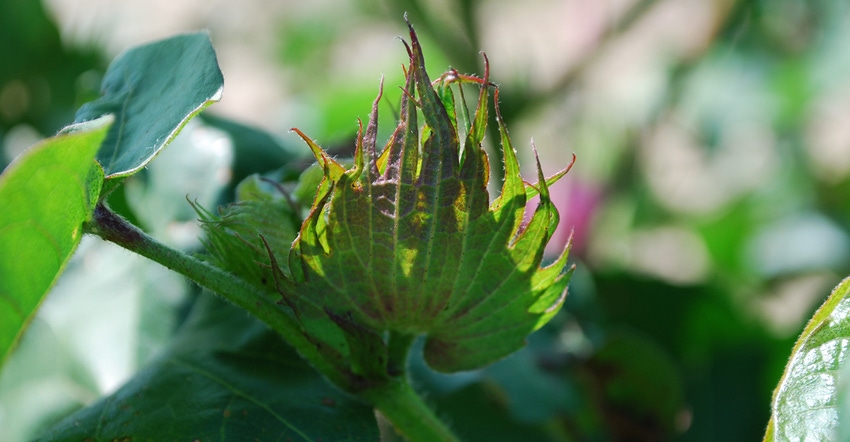March 29, 2021

Sponsored Content
Understanding the plant growth regulator (PGR) sensitivity of cotton varieties is essential in developing a management plan for the product planted on a given farm or field.
Mepiquat chloride PGR products benefit cotton production by helping balance vegetative growth with reproductive growth. PGR applications of the appropriate rate and timing are essential to the management of cotton varieties. New cotton varieties are coming onto the market faster than ever before. Each season, new Deltapine® cotton varieties from across the cotton-growing region are evaluated at the Bayer Learning Center in Scott, Mississippi, for PGR application response and demand in the productive Delta system.
Data based on 2011-2020 research of cotton variety PGR application and response using labeled rates of product indicates that significant differences exist in the response of Deltapine cotton varieties to PGR application. Some varieties are more responsive to PGR application (DP 2012 B3XF, DP 2020 B3XF, DP 2123 B3XF, DP 1725 B2XF), while others are less responsive to PGR (DP 1646 B2XF, DP 2127 B3XF, DP 2038 B3XF, DP 2055 B3XF). In less-responsive cotton varieties, the negative response to excessive growth that can occur from inadequate rates of PGR application is greater than in more-responsive cotton varieties.
In a MORE-responsive cotton variety, the yield response to 1 inch of excess height was -20.11 lbs./inch.
In a LESS-responsive cotton variety, the response was -27.78 lbs./inch.
This response is greater because of the cascading effects of the following:
Too much energy going into vegetation and not available to fruit.
Fruit shed from shading and a lack of carbohydrate availability.
Less fruit and a bigger plant results in more carbohydrates available with nowhere to go but to more vegetative growth.
If fruit shed continues, with water and sunshine, the plant continues to grow out of control.
All of this is an artifact of the basic nature of a cotton plant — that is, it’s a perennial plant that we grow and manage as an annual. The plant’s programming is: “If I don’t fruit this year, it’s OK. I’ll do it next year because I’m a perennial, and I’ll be even bigger, with more fruiting sites to make more seeds next year.”
Our challenge is to use this data and overcome that nature of a cotton plant. This data points out that knowing the background PGR response of a variety is very important. The PGR backgrounds of Deltapine cotton varieties are understood and available to growers in all regions of the Cotton Belt.
In summary, know your cotton variety. If growing less-sensitive cotton varieties, the requirement for timely applications of appropriate rates of PGR is even more important. When considering this data in making management decisions, growers should consider:
Cotton variety response to PGR.
Cotton variety growth habit.
Field history — Growthy fields should not have very growthy, less-responsive cotton varieties planted on them without careful consideration.
Irrigation status — Dry or irrigated.
Planting populations — In many cases, we have the chance to use less-responsive cotton varieties in growthy systems if we make appropriate adjustments to population and PGR application planning.
To learn more, contact Jay Mahaffey, manager of the Bayer Learning Center, at [email protected].
Performance may vary, from location to location and from year to year, as local growing, soil and weather conditions may vary. Growers should evaluate data from multiple locations and years whenever possible and should consider the impacts of these conditions on the grower’s fields.
ALWAYS READ AND FOLLOW GRAIN MARKETING AND ALL OTHER STEWARDSHIP PRACTICES AND PESTICIDE LABEL DIRECTIONS.
Bayer, Bayer Cross and Deltapine® are registered trademarks of Bayer Group. ©2021 Bayer Group. All Rights Reserved.
About the Author(s)
You May Also Like




